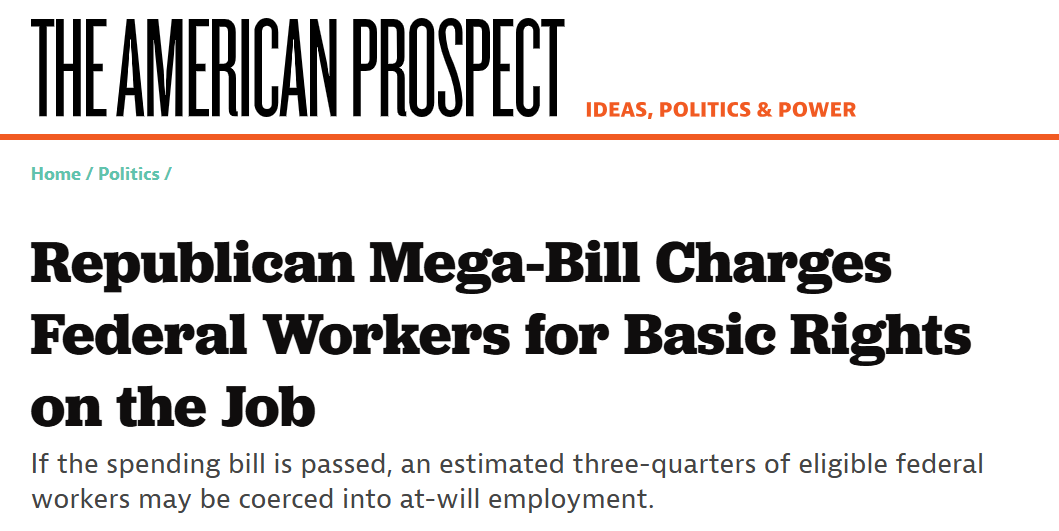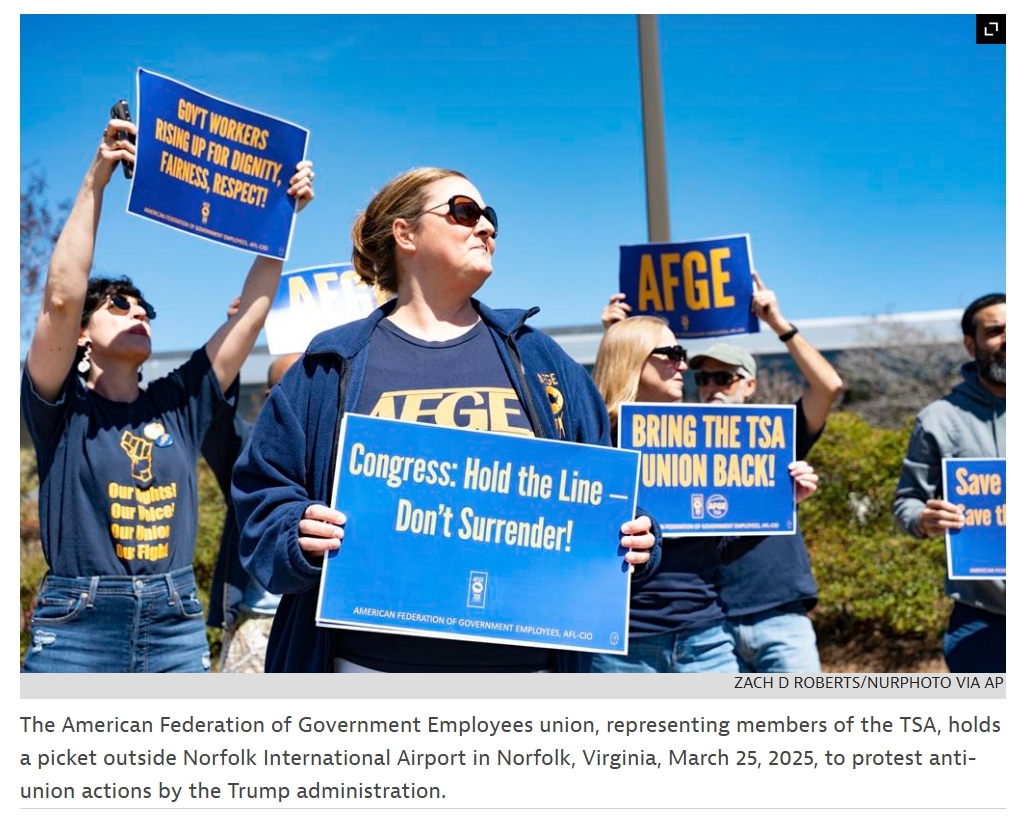Republican Mega-Bill Charges Federal Workers for Basic Rights on the Job
 https://prospect.org/politics/2025-06-03-republican-mega-bill-charges-federal-workers-for-basic-rights/
https://prospect.org/politics/2025-06-03-republican-mega-bill-charges-federal-workers-for-basic-rights/

Deep in the Republicans’ behemoth spending bill is a provision that would coerce federal workers to give up their employment protections, an escalation of the Trump administration’s wide-ranging attack on the civil service. If passed with the House provision intact, the One Big Beautiful Bill Act would require all federal workers hired after the effective date to elect to become at-will employees or functionally lose a chunk of their paycheck. If they choose the at-will employee option, the bill says, they “may be subject to an adverse action up to and including removal, without notice or right to appeal, by the head of the agency at which the individual is employed for good cause, bad cause, or no cause at all.”

That would strip protections most federal employees enjoy, particularly from those operating under a labor bargaining contract. Any employee hired after the bill goes into effect who does not give up their employee protections will see their mandatory retirement contributions rise precipitously—which amounts to taking money out of their paychecks. Not all federal workers will be required to make this decision, which primarily affects those in the competitive service. Some workers who focus on confidential issues or policies are exempted from the competitive service and also from this provision.
The provision involves workers’ retirement contributions. Any civilian federal employee hired after 2013 is required to place 4.4 percent of their pay into the Federal Employees Retirement System (FERS). When federal workers retire, they receive a defined benefit pension. Workers who elect to keep their employment protections will be required to pay five percentage points more into FERS, raising their mandatory retirement contributions to 9.4 percent of their paycheck. This will not change the benefit they receive upon retirement, so the higher contribution would effectively amount to a lower paycheck. “It really amounts to charging people for their basic rights,” said Daniel Horowitz, the legislative director of the American Federation of Government Employees (AFGE), a union that represents 820,000 government workers. “If you can’t pay, you lose them.”
According to a Congressional Budget Office (CBO) analysis of federal workers’ “perceptions of job security” and “willingness to forgo current compensation for future benefits,”
three-quarters of eligible workers will likely enter into at-will employment to keep their full paychecks. CBO says that the average salary of affected workers is $71,000, which for many employees does not leave enough wiggle room in their personal budgets to give up 5 percent of their take-home cash per month. Federal workers
already make less than their private-sector counterparts, the CBO found. This extra take-home pay cut could be enough to push some federal workers into the private sector.
snip


